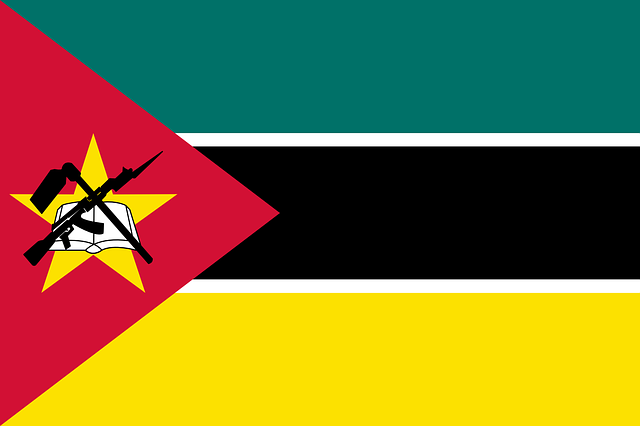About the Poem
Lomwe chants were sung on plantations in Mozambique during the imperial occupation of Africa. The Lugella Company, an Portuguese agricultural company, ran sisal plantations throughout modern day Mozambique and Angola. This company produced rope, paper, and cloth goods from the flowering plant pictured above. One common job on these plantations was machila bearers. Machila, meaning “cloth” in Lomwe, was fashioned into the hammocks used to carry Europeans. Four carriers would hold the hammocks on each corner. To keep pace as they ran, they would sing rhythmic chants. Because the European passengers couldn’t speak the native languages of the carriers, the songs were often satirical and would make fun of the passengers. Satirical and protest work songs, such as the one featured here, were one of many forms of resistance against the quasi-governmental control the Portuguese plantation companies had over the people of Mozambique until 1930.
English
You weep, you sleep stiffly, when you are old! O — o, You weep, you sleep stiffly, when you are old! O — o, You weep, you sleep stiffly, when you are old! Pick it up, quickly! You weep, you sleep stiffly, when you are old! Come quickly! You weep, you sleep stiffly, when you are old! The machila must be carried along fast: You weep, you sleep stiffly, when you are old! You’ll be helped now, you will: You weep, you sleep stiffly, when you are old! You’ll be helped in just a moment: You weep, you sleep stiffly, when you are old! Here, now, you’ll be helped You weep, you sleep stiffly, when you are old! Servants! Where are you, you servants? You weep, you sleep stiffly, when you are old! Tell the bearers! You weep, you sleep stiffly, when you are old! This group must go to help the others: You weep, you sleep stiffly, when you are old! You! Hurry up there! (We’ll drop it!) You weep, you sleep stiffly, when you are old! White people came to be worked for! (Heavy white men! People have to work for them, that’s true.) You weep, you sleep stiffly, when you are old! Come quickly, come quickly! You weep, you sleep stiffly, when you are old! Sweep the yard! That one! Sweep the yard! You weep, you sleep stiffly, when you are old! Those white men are coming here today: You weep, you sleep stiffly, when you are old! Come quickly! (It’s midday!) You weep, you sleep stiffly, when you are old! At midday, we’ll arrive: You weep, you sleep stiffly, when you are old! Hunger! (Hurry! Hurry!) You weep, you sleep stiffly, when you are old! The white men are eating! You weep, you sleep stiffly, when you are old! Machila! You weep, you sleep stiffly, when you are old! You must work at this job! You weep, you sleep stiffly, when you are old! Bearer! You weep, you sleep stiffly, when you are old! Keep your backbone steady! You weep, you sleep stiffly, when you are old! Run! You weep, you sleep stiffly, when you are old! At midday, well arrive at Mochema: You weep, you sleep stiffly, when you are old! At Mochema, at Mochema! (Hurry! I’m going to drop it!) You weep, you sleep stiffly, when you are old!
Lomwe
Munanlela okono muloka
muluvanle!
O — o,
Munanlela okono muloka
muluvanle!
O — o,
Munanlela okono muloka
muluvanle!
Mwakuviheke!
Munanlela okono muloka
muluvanle!
Mwakuveke!
Munanlela okono muloka
muluvanle!
Machira anamochimakiwa:
Munanlela okono muloka
muluvanle!
Munamoroliwa nyuwo:
Munanlela okono muloka
muluvanle!
Vava hihano munamoroliwa:
Munanlela okono muloka
muluvanle!
Munamoroliwa hihanovava.
Munanlela okono muloka
muluvanle!
Amulejki! Muruwi amuleki?
Munanlela okono muloka
muluvanle!
Mwalele amachilero!
Munanlela okono muloka
muluvanle!
Epareyo yaworole akwaya:
Munanlela okono muloka
muluvanle!
Mwakuveyo weTu!
(Kinamuriha!)
Munanlela okono muloka
muluvanle!
Akunya yarwele olampwa!
(Olimela akuya!
Anamulapwa
valiyai)
Munanlela okono muloka
muluvanle!
Mwakuveke, mwakuveke!
Munanlela okono muloka
muluvanle!
Nvele vate!
Nele vate vo!
Munanlela okono muloka
muluvanle!
Akunya anarwa
olelo yala:
Munanlela okono muloka
muluvanle!
Mwakuveke!
(Mitiya!)
Munanlela okono muloka
muluvanle!
Mitiya nampiya:
Munanlela okono muloka
muluvanle!
Ntala!
(Mwakuveke. Mwakuveke!)
Munanlela okono muloka
muluvanle!
Akunya vanja!
Munanlela okono muloka
muluvanle!
Machira!
Munanlela okono muloka
muluvanle!
Yarwele olampwa!
Munanlela okono muloka
muluvanle!
Machilero!
Munanlela okono muloka
muluvanle!
Wakisa murana!
Munanlela okono muloka
muluvanle!
Otimaka!
Munanlela okono muloka
muluvanle!
Mitiya nampiya vana Mochema:
Munanlela okono muloka
muluvanle!
Vana Mochema, vana Mochema!
(Mwakuve! kinamuriha!)
Munanlela okono muloka
muluvanle!
Author Information

While no single author can be credited for this song, it is likely that the machila-bearers who chanted it lived the north-central region of Mozambique around 1915. The song references Mochema, a Lugella station bordering Nyasaland.
Lomwe, also called Ellomwe and ChiLomwe, is a Bantu language spoken throughout Mozambique and Malawi, and continues to have more than one million native speakers today. While it is considered to be a stable language, it is most commonly used in the home and community of indigenous speakers rather than in formal institutions. It is spoken alongside 42 other living languages in Mozambique.
The National Museum of Language would like to thank AfricanPoems.net for allowing us to publish this piece on our website.
